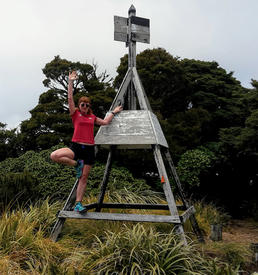Accurately Measuring Muscle?
Options

Blessedbecca24
Posts: 10 Member
I have a Taylor scale that shows BMI, water, body muscle etc. I know it is a good reference but my muscle changes (+/-) depending on my weight (even .5) I know I’m losing fat because I’ve lost several inches (do a lot of strength/weight training and cardio) and feel more of my weight fluctuations are probably due to water or whatnot and not necessarily losing muscle, especially day to day!
So my question is, besides taking my measurements is there a way I can track my muscle? I know at the end of the day it really doesn’t matter but I’m just curious and I’ve spent 30 minutes googling 😂
Also, I’ve looked into DXA scan and while that would be amazing, seems pricey at the moment.
Thank you in advance!
So my question is, besides taking my measurements is there a way I can track my muscle? I know at the end of the day it really doesn’t matter but I’m just curious and I’ve spent 30 minutes googling 😂
Also, I’ve looked into DXA scan and while that would be amazing, seems pricey at the moment.
Thank you in advance!
1
Replies
-
Outside of a Dexa Scan, Bod Pod and InBody (their latest model) are good options. InBody is probably a level below Dexa and Bod Pod, but it is usually a lot cheaper and still much better than your home scale.
Other than that, usually if you share a picture on these boards, there are some members here who are pretty good at estimating body fat percentages.2 -
Dexa Scan or Bod Pod are really the only reliable methods. Progress pics do a great job of helping you "see" your progress,although obviously they won't give you a number!2
-
If you're strength training, get adequate protein, and have a sensible deficit, you can assume that your muscle loss is fairly small
 1
1 -
BodPod accuracy isn't on the same level as DEXA scans.
It's popularity is more to do with expense and being completely non-invasive - doesn't need skilled staff to operate and running costs are very low.
Things like lung volume and body hair can mess with the results.
Hydrostatic testing (dunk tank) is also seen as a good method of body analysis.
Calipers in the hands of a skilled user can be reasonable.
Four sensor BIA devices (InBody, Boditrax etc..) can be reasonable if used under consistent conditions but are sensitive to variations in hydration levels. Should be good enough for a trend but that trend line might have some odd spikes.
IMHO a reasonable trend is good enough for purpose, accuracy is nice but not required for average people. If you keep in mind that muscle mass changes slowly then poor individual data points become obvious and irrelvant.
1
Categories
- All Categories
- 1.4M Health, Wellness and Goals
- 391.4K Introduce Yourself
- 43.5K Getting Started
- 259.7K Health and Weight Loss
- 175.6K Food and Nutrition
- 47.3K Recipes
- 232.3K Fitness and Exercise
- 390 Sleep, Mindfulness and Overall Wellness
- 6.4K Goal: Maintaining Weight
- 8.5K Goal: Gaining Weight and Body Building
- 152.7K Motivation and Support
- 7.8K Challenges
- 1.3K Debate Club
- 96.3K Chit-Chat
- 2.5K Fun and Games
- 3.2K MyFitnessPal Information
- 22 News and Announcements
- 922 Feature Suggestions and Ideas
- 2.3K MyFitnessPal Tech Support Questions



